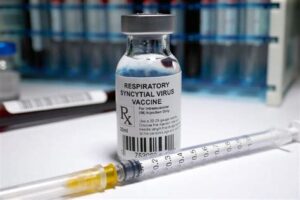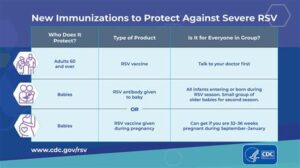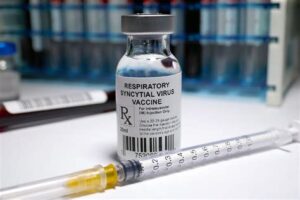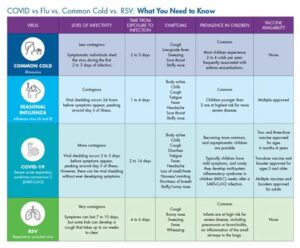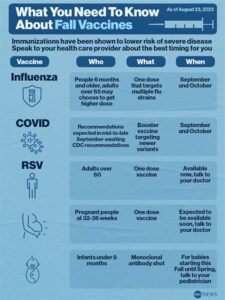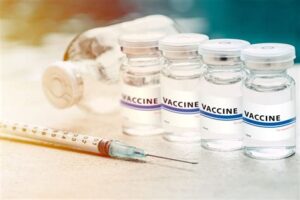Explore the RSV vaccine’s composition, safety, efficacy, and recommendations, including the presence of live virus and essential precautions for optimal protection.As the respiratory syncytial virus (RSV) continues to impact individuals, particularly infants and the elderly, the development of an RSV vaccine has become a significant focus in public health. With various vaccines emerging, many people have questions regarding their composition and safety. One common concern is whether these vaccines contain live virus components, which can influence decisions about vaccination. In this blog post, we will explore key aspects of the RSV vaccine, including its overall understanding, composition, and the presence of live virus. Additionally, we will discuss the safety and efficacy of the vaccine, as well as provide crucial recommendations and precautions for potential recipients. By shedding light on these important topics, we aim to help readers make informed decisions about the RSV vaccine and prioritize their health and well-being.
Understanding RSV Vaccine
Respiratory Syncytial Virus (RSV) is a significant cause of respiratory infections, particularly in infants and young children. Understanding the RSV vaccine is crucial for parents, caregivers, and healthcare providers as it offers an essential tool in preventing these infections. The RSV vaccine is specifically designed to stimulate the immune system to recognize and fight off the virus, reducing the risk of severe illness.
The composition of the RSV vaccine typically includes a protein that mimics the structure of the virus, promoting an immune response without causing disease. Importantly, the vaccine does not contain the live virus, meaning that individuals who receive the vaccine are not exposed to the risk of infection from the vaccine itself. This characteristic makes it a safer option for vulnerable populations.
Moreover, while the vaccine significantly increases immunity against RSV, it is vital to address any concerns regarding its safety and efficacy. Clinical trials have shown that the RSV vaccine is both effective in preventing the virus and has a favorable safety profile. Nevertheless, recommendations and precautions should be discussed with a healthcare provider to ensure that the vaccine is appropriate for your child or loved one.
Composition of RSV Vaccine
The Respiratory Syncytial Virus (RSV) vaccine is designed to protect against a virus that primarily affects infants and young children. The composition of the RSV vaccine plays a critical role in its effectiveness and safety.
- Antigens: These are substances that provoke an immune response. In the case of RSV, the vaccine may contain proteins derived from the virus that stimulate antibody production without causing disease.
- Adjuvants: These are added to enhance the immune response. They help to improve the vaccine’s efficacy, ensuring that the body reacts more strongly to the antigens.
- Stabilizers: To maintain the vaccine’s stability during storage and transportation, stabilizers are incorporated. They help ensure that the vaccine remains effective until it’s administered.
- Excipients: These are substances included for various purposes, such as enhancing solubility or preserving the vaccine formulation.
It’s crucial to note that the RSV vaccine does not contain live virus components. Instead, the vaccine is designed to safely mimic the virus, allowing the immune system to prepare a defense. Therefore, there is no risk of contracting RSV from the vaccine itself.
Presence of Live Virus
The RSV vaccine, developed to protect against Respiratory Syncytial Virus, is often at the center of discussions regarding its safety and composition. A common concern among individuals is whether the vaccine contains any live virus. Understanding this aspect is crucial for those considering vaccination for themselves or their children.
Currently, there are several types of RSV vaccines in development and some that are already approved for use. Most of these vaccines are designed to stimulate the immune system without using the live virus itself. Instead, they may utilize inactivated, recombinant, or subunit methods to elicit an immune response similar to that induced by natural infection.
To clarify, most approved RSV vaccines do not contain live virus components. This significantly reduces the risk of causing the disease in individuals receiving the vaccine. Therefore, it is essential for healthcare providers and caregivers to discuss any concerns related to live virus presence in the R
Safety and Efficacy
The RSV vaccine has undergone rigorous testing to ensure its safety and efficacy in preventing respiratory syncytial virus infections. Various clinical trials have demonstrated that the vaccine is adept at generating a robust immune response without compromising the health of the recipients.
According to recent studies, the efficacy of the RSV vaccine is particularly notable among vulnerable populations, including infants and the elderly. This is crucial, as these groups are at a higher risk for severe illness related to RSV. Published data show that vaccinated individuals significantly reduce their risk of hospitalization and severe respiratory complications.
Moreover, the side effects reported from the RSV vaccine are generally mild and temporary, often resembling those of a standard flu shot. Common symptoms include mild swelling at the injection site, fever, and fatigue. Regulatory bodies continue to monitor the long-term outcomes to ensure ongoing safety as the vaccine becomes widely utilized.
Recommendations and Precautions
When considering the RSV vaccine, it’s essential to understand the necessary recommendations and precautions to ensure its safe and effective use. Healthcare professionals often emphasize discussions with patients regarding their medical history to properly assess potential risks.
- Consult a Healthcare Provider: Before getting vaccinated, individuals should consult with a healthcare provider to evaluate their health status and determine if the vaccine is appropriate for them.
- Allergies: Make sure to inform the healthcare provider about any known allergies, especially to components present in the RSV vaccine.
- Immunocompromised Individuals: People with weakened immune systems should discuss the risks with their doctors, as they may have different considerations.
Additionally, it’s important to remain informed about the guidelines and recommendations set forth by health authorities. Regular updates from reliable sources can provi
Frequently Asked Questions
Does the RSV vaccine contain live virus?
No, the RSV vaccine does not contain live virus; it uses a different mechanism to stimulate the immune response.
What type of vaccine is the RSV vaccine?
The RSV vaccine is generally classified as a subunit or inactivated vaccine, meaning it contains only parts of the virus or a non-replicating version.
What is the purpose of the RSV vaccine?
The purpose of the RSV vaccine is to protect individuals, particularly infants and the elderly, from respiratory syncytial virus infections, which can be severe.
Are there any side effects associated with the RSV vaccine?
Like any vaccine, the RSV vaccine may have side effects, but these are usually mild and can include soreness at the injection site or low-grade fever.
Who should receive the RSV vaccine?
The RSV vaccine is primarily recommended for high-risk groups, such as infants under six months and the elderly with pre-existing conditions.
How is the RSV vaccine administered?
The RSV vaccine is typically administered via injection, usually in a healthcare setting.
When is the RSV vaccine expected to be available for widespread use?
The availability of the RSV vaccine for widespread use will depend on ongoing clinical trials and regulatory approvals, but as of now, it is being actively developed.
